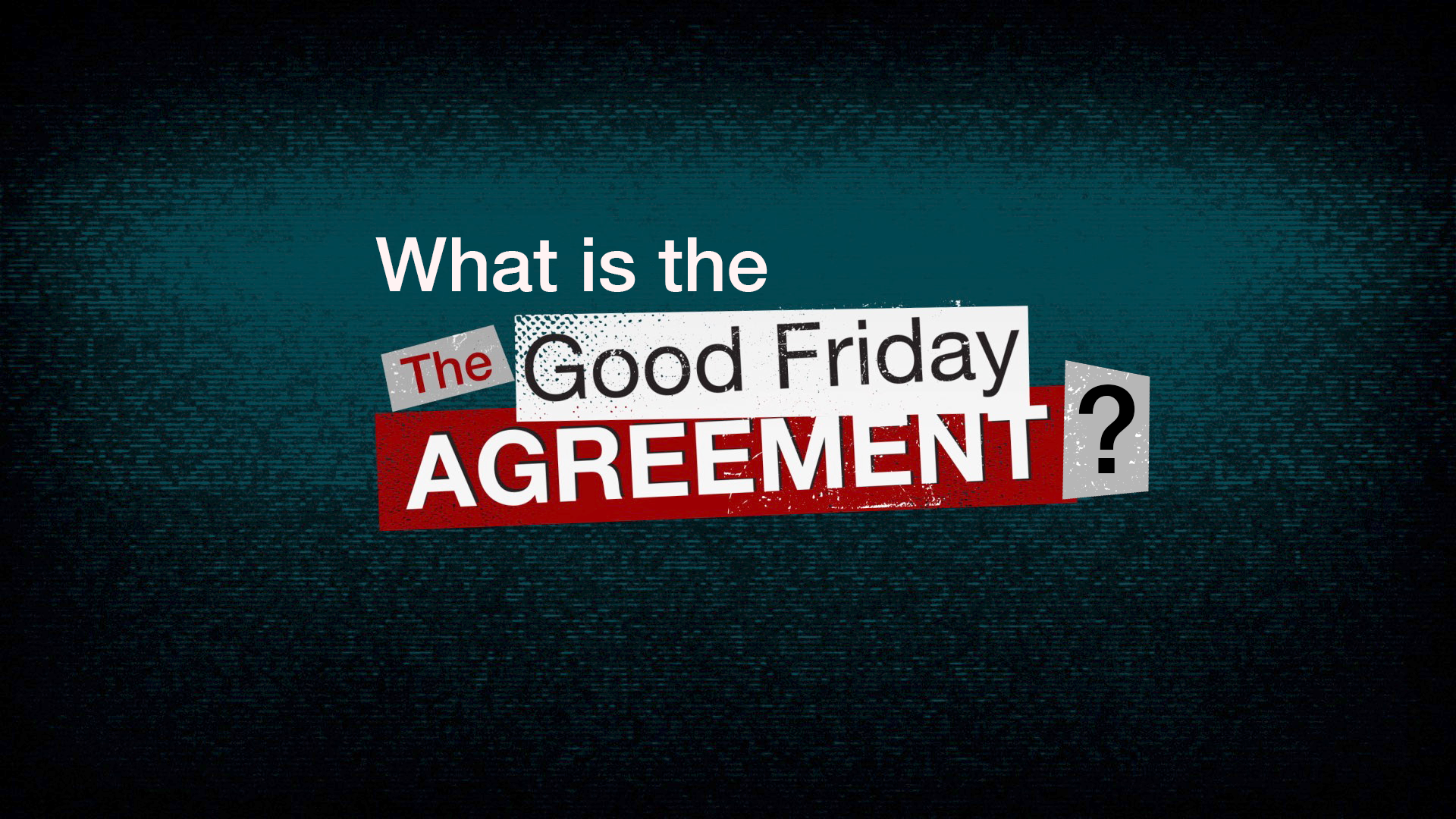NI state papers: Sinn Féin and PUP's 'face-to-face confrontation'
- Published
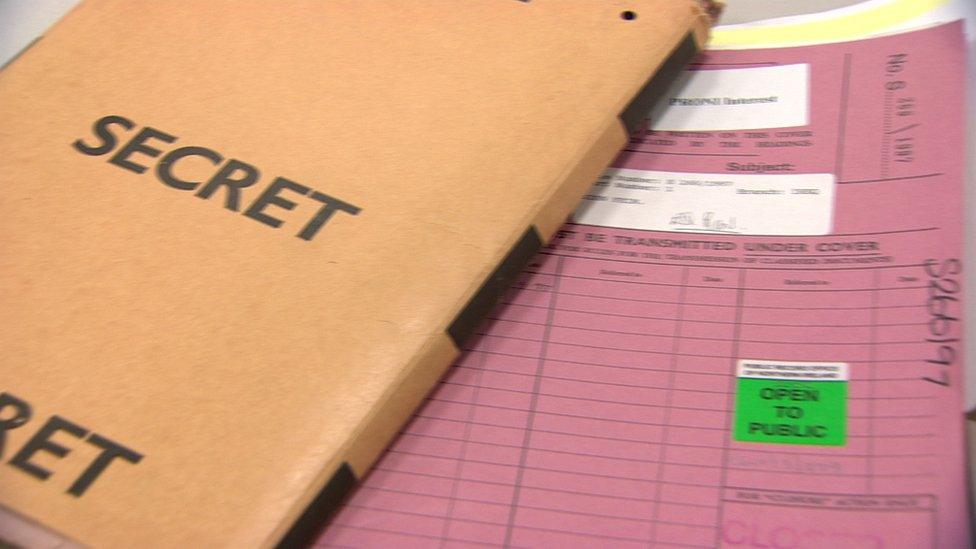
The Public Record Office in Belfast has released 695 files, the majority relate to 1998 although some cover earlier years
Newly-released state papers from 1998 reveal some of the tensions behind-the-scenes in the run-up to the Good Friday Agreement.
There was a clash between Sinn Féin's Martin McGuinness and loyalist politician David Ervine, and last-minute wrangles over prisoner releases and cross-border cooperation.
The previously unseen documents from 1998 also outline private efforts made by the then SDLP leader John Hume to ensure the April agreement was supported in the subsequent referendum in May.
The Public Record Office in Belfast has released 695 files.
The majority of them relate to 1998 although some cover earlier years.
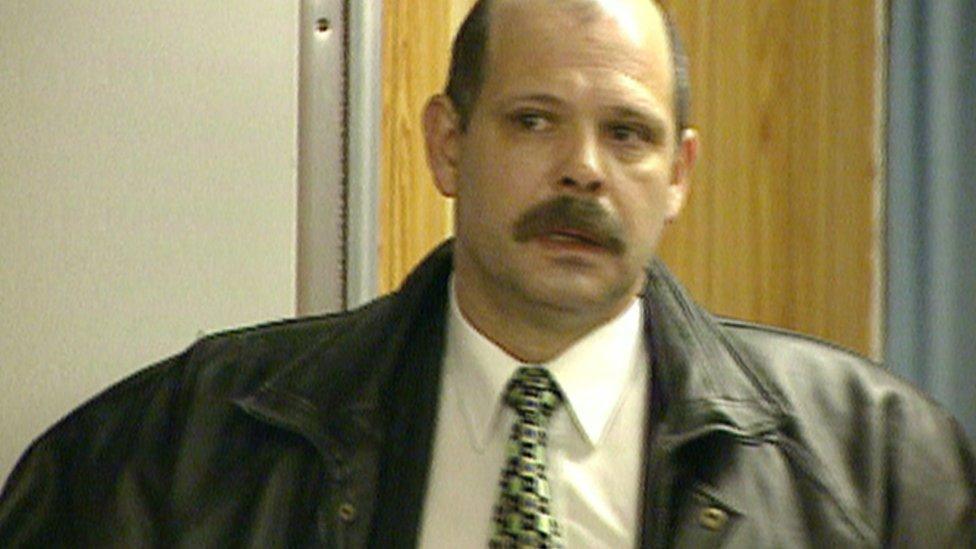
David Ervine is reported to have engaged Martin McGuinness in a "face-to-face confrontation"
After the IRA ceasefire in 1997, Sinn Féin entered talks at Stormont which included the Ulster Unionist Party (UUP), the loyalist Progressive Unionist Party (PUP), the nationalist SDLP and the cross-community Alliance Party.
As the negotiations intensified in January 1998, Sinn Féin insisted that the UUP should be prepared to meet the party one-to-one rather than just at multi-party sessions.
Martin McGuinness said the UUP's reluctance to do so was "creating a climate where sectarian murder was inevitable".
David Ervine then "engaged him in a face-to-face confrontation", according to minutes of the meeting on 13 January written by a Northern Ireland Office (NIO) official.
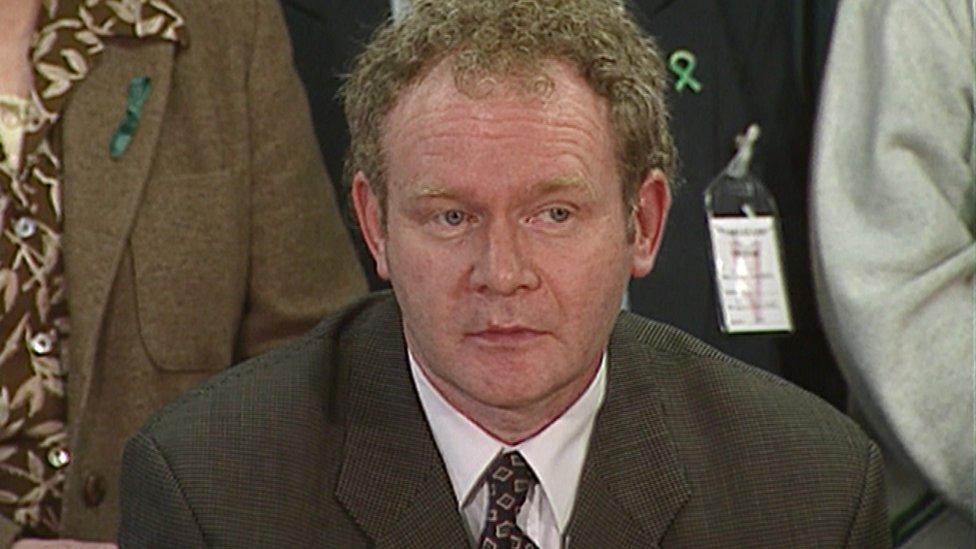
Martin McGuinness is reported to have said that none of his remarks could be interpreted as a threat in any way
"Mr Ervine said that Mr McGuinness's observation was quite frankly an insult and he resented the use of threatening language," the official said.
In response, Mr McGuinness is reported to have said that none of his remarks could be interpreted as a threat in any way.
The discussion was then brought to a close by the American chairman of the talks, Senator George Mitchell.
Prisoner releases and power-sharing
By early April, the negotiations had reached their closing stages.
The then Northern Ireland Secretary Mo Mowlam met Sinn Féin leaders who expressed their view that prisoners should be released quickly as part of any agreement and be free to stand for election.
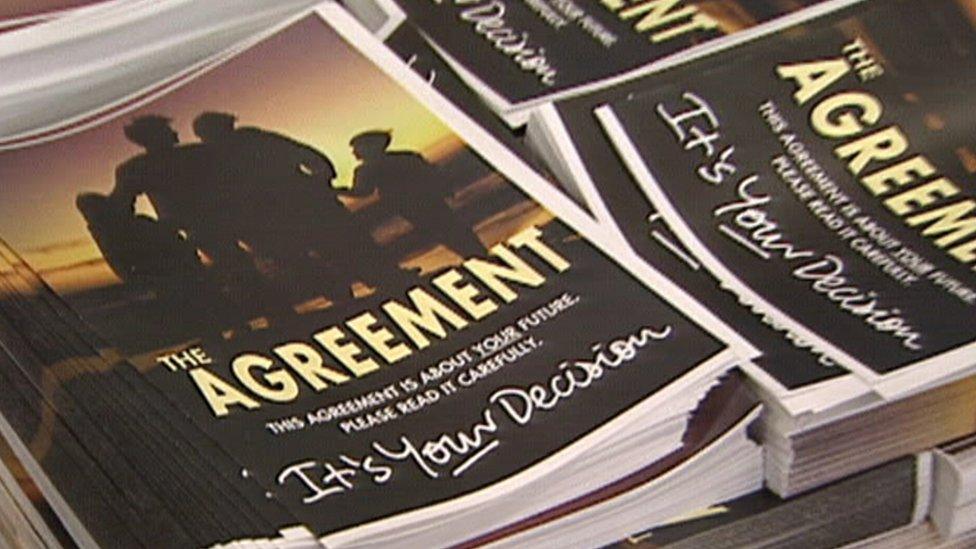
The following day, 7 April, Mo Mowlam met UUP leader David Trimble who is reported to have referred to proposed changes to the Republic of Ireland's constitution as "wholly inadequate" and called draft north-south structures "garbage".
The state papers highlight the gaps between the parties before agreement was eventually reached.
At one stage, the SDLP's negotiator Mark Durkan stressed the need for meaningful north-south cooperation and commented that simply having "day release schemes for nationalists" would not work.
On Friday 10 April, differences on all outstanding issues were resolved and agreement was reached on what was Good Friday.
By the end of the month, preparations were under way for a referendum on the agreement. The deal was more warmly welcomed amongst nationalists than unionists.
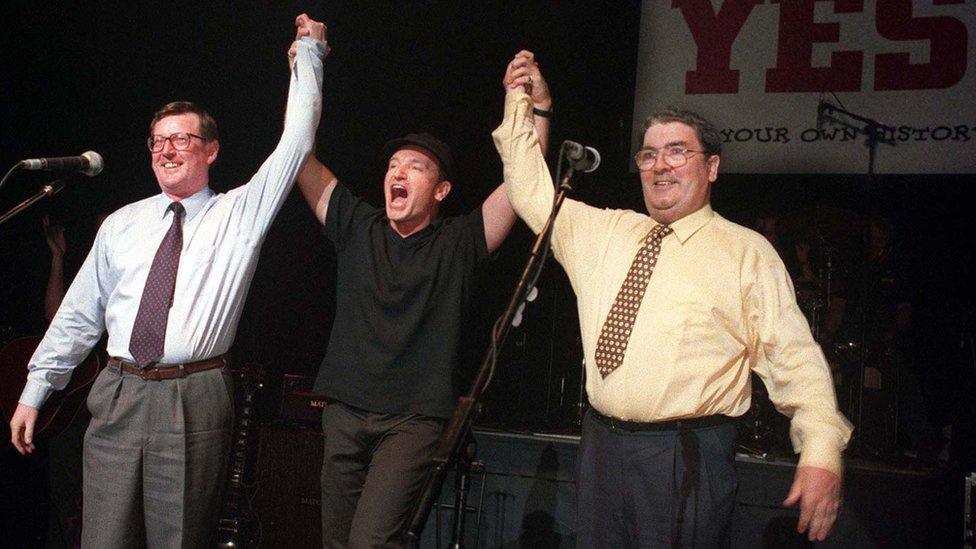
David Trimble, U2 singer Bono and John Hume campaigning for the agreement in 1998
A government memo dated 29 April 1998 details a discussion between the then NIO (Northern Ireland Office) minister Paul Murphy and the SDLP's John Hume, who was keen to ensure that nationalists acted sensitively and did not "claim victory" in the referendum campaign.
The paper says he asked for one of his own party leaflets to be re-written, and offered to help David Trimble in any way he could.
He even said he intended to speak to DUP leader Ian Paisley, the main opponent of the agreement, "to get him to consider how much could be achieved by working together".
In the end, the agreement won the backing of 71% of voters in Northern Ireland in the May referendum.
The next challenge was the setting up of a power-sharing executive and the appointment of a first and deputy first minister.
Drumcree tensions
In the meantime, tensions began to build over the annual Orange Order parade at Drumcree, on the outskirts of Portadown.
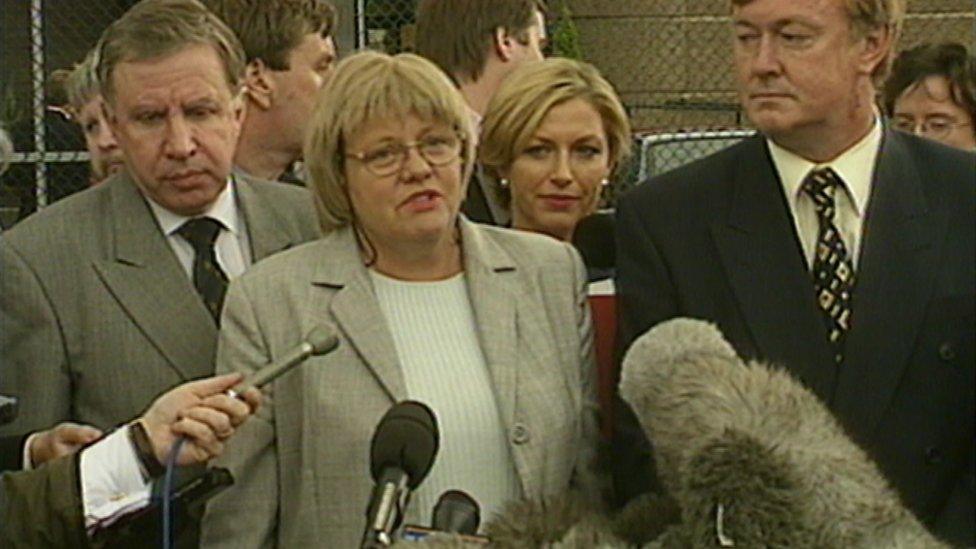
Mo Mowlam (centre) told an Orange Order member not to "insult her or her government"
The state papers record that during the previous year, in July 1997, there was a stormy meeting between Mo Mowlam and the Orange Order at Stormont Castle.
It was noted that one senior Orangeman "made the mistake of saying the government should stop pandering to Sinn Féin".
Dr Mowlam "told him in no uncertain terms not to insult her or her government".
The Orangeman then apologised.
Related topics
- Published29 December 2020
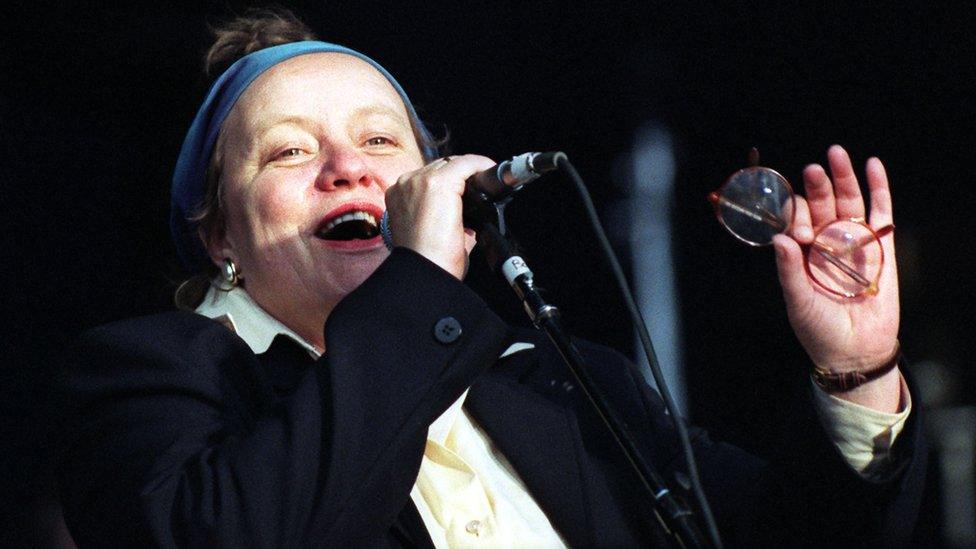
- Published10 April 2018
